It is with much gratitude and admiration that we celebrate the jury alumni members of the Core77 Design Awards.
- All Categories
- Built Environment
- Commercial Equipment
- Consumer Technology
- Design Education Initiative
- Design for Social Impact
- Furniture & Lighting
- Health & Wellness
- Home & Living
- Interaction
- Packaging
- Personal Accessory
- Service Design
- Speculative Design
- Sports & Recreation
- Strategy & Research
- Tools & Work
- Transportation
- Visual Communication
Jury Alumni

Alice Chung
Co-founder, Omnivore
2020 Visual Communication Jury Member
ALICE CHUNG is founding partner at Omnivore. She has collaborated with clients such as Princeton University School of Architecture, Fondazione La Biennale di Venezia, Luhring Augustine Gallery, University Settlement, and artist Polly Apfelbaum on endeavors ranging from identity systems to websites and publications. She studied at Johns Hopkins University and Harvard University where she received a B.A. in biology and a M.P.H. in health and social behavior. Her graduate work led her to shift her focus to design studies at the Rhode Island School of Design. She is Senior Critic in Graphic Design at Yale University School of Art.

Karen Hsu
Co-founder, Omnivore, Inc.
2020 Visual Communication Jury Member
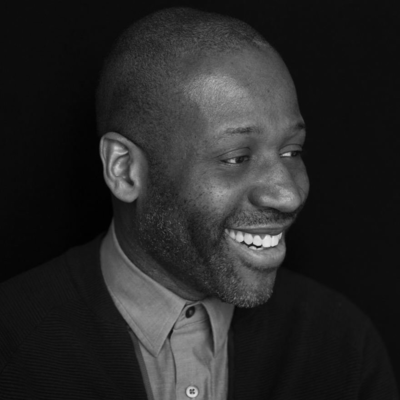
Eddie Opara
Partner-in-Charge, Creative Director, Pentagram
2020 Visual Communication Jury Captain
Eddie Opara was born in London in 1972. He studied graphic design at the London College of Printing and Yale University. He began his career at ATG and Imaginary Forces and worked as senior designer-art director at 2×4 before establishing his own studio, The Map Office. He joined Pentagram’s New York office as partner in 2010. His projects have included the design of brand identity, publications, packaging, environments, exhibitions, interactive installations, websites, user interfaces and software, with many of his projects ranging across multiple media and clients including; lululemon, Samsung, Cooper Hewitt, Smithsonian Design Museum, Nike, Grace Farms, the Menil Foundation, the Corcoran Group, Morgan Stanley, New York University, SHoP Architects, buroOS, Skidmore Owings & Merrill (SOM), David Adjaye Associates and Princeton Architectural Press. His work is in the permanent collection of the Museum of Modern Art and has appeared in publications such as Wired, Fast Company, Creative Review, Archis, Surface and Graphis. Opara is also a senior critic at the Yale University School of Art and has recently authored a book, Color Works, published by Rockport. He was named one of Adweek Creative 100 in 2018, one of Fast Company’s 100 Most Creative People in Business in 2012 and 2014, and was featured in Ebony Magazine’s Power 100 list.

Anton Ljunggren
Director of Global Design and Innovation, PepsiCo
2020 Commercial Equipment Jury Member
Anton Ljunggren is a Director of Global Design and Innovation at PepsiCo where he works on building new businesses to unlock behavior change in health and environmental sustainability. Prior to PepsiCo Anton was the head of design at, clean energy startup, BioLite, bringing electricity, lighting and clean air cooking to hundreds of thousands of users in emerging markets. He also worked at frog and Smart Design where he designed products and experiences for companies including Cisco, Disney, Google, Hewlett Packard, Intel, Nike, Panasonic and Skype. His work has garnered global recognition winning awards including from CES, Core77, FastCo, IDSA, IF, Spark and Red Dot.

Lesley Braxton
Principal, Perkins & Will
2020 Built Environment Jury Member
Having moved 8 times to 8 different states before the age of 17, Lesley learned at a young age to embrace change, optimism and the cultures of many. This influenced her path as an architect and interior designer to take a wide angle view and operate as generalist in a seemingly very specific world. She designs across higher education, science & technology and corporate markets, ultimately blending influences of each sector into the next. This blurring helps her bring clients bold ideas deeply rooted in place and project understanding. Lesley is the glue that holds complex teams together by bringing nationally recognized, award winning design leadership, and an empathetic, hands on approach.
Lesley is a frequent guest speaker and critic at local universities. She is also a dedicated mentor to many young women, helping them develop careers while giving her a deeper look into their cultures. Lesley also has a deep love for art and travels the world with her family drawing and painting; Both of her children held paint brushes before the ever holding a pencil.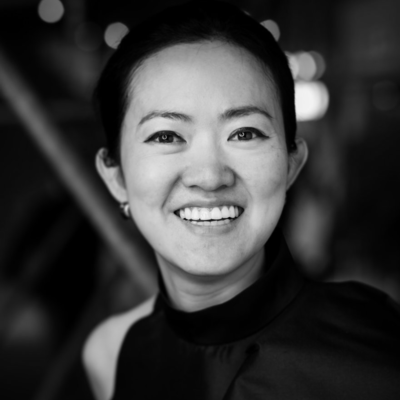
Kotchakorn Voraakhom
Founder and CEO, Porous City Network
2020 Design for Social Impact Jury Member
Kotchakorn Voraakhom is a landscape architect from Thailand who works on building productive green public spaces that tackle climate change in urban dense areas and vulnerable communities. She created the first critical green infrastructure for Bangkok, the Chulalongkorn Centenary Park, and is currently planning the opening of a 36-acre urban farm rooftop featuring the biggest urban farming green roof in Asia.
Voraakhom was featured in the 2019 “TIME 100 Next” list as one of 15 leading women fighting against climate change and the “Green 30 for 2020” by Bloomberg. She is Chairwoman on the Landscape Architects Without Borders working group of the International Federation of Landscape Architects, Asia Pacific Region (IFLA APR).
Voraakhom received her Master's in landscape architecture from Harvard University's Graduate School of Design. Currently she is also a TED Fellow and an Echoing Green Fellow.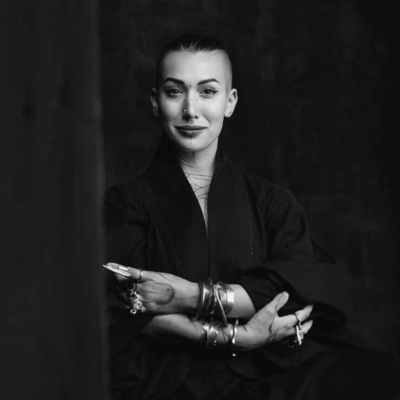
Monika Bielskyte
Futures Researcher/Futurist Designer, PROTOPIA
2020 Speculative Design Jury Member
As the Founder of Protopia Futures, Monika Bielskyte is the architect of a platform and a community to proactively prototype inspiring and actually livable future visions. Her journey as a nomadic explorer in over 100 countries has given her first-person experience of the interconnectedness between human cultural priorities and the unfolding future.
Monika was born in the Soviet Union, and grew up in the newly liberated Lithuania, before leaving the country at age 17. Her perspectives as a futurist have been shaped by the collapse of the physical boundaries of a totalitarian regime, and the opening up of the digital world – its opportunities and its harms. She currently resides in Johannesburg, South Africa – which gives her deeper insights into broader futures perspectives, beyond the imaginations of the Global North.
Monika started her career as a creative – working on movie sets in her late teens and progressively moving towards the bleeding edge of technological innovation and scientific research by her mid-20s. Her multicultural and multidisciplinary background, as well as an uncompromising focus on the intricate relationship between future fictions and real-life, have guided her on a journey that makes her voice clearly distinct in today’s foresight industry.
Monika has worked not only with established global media, tech and lifestyle companies such as Universal, Google, Nike, BBC and the WEF, but also various governments and cities. Her contributions have resonated across both industry corridors and academia, from The Royal
Society to CERN.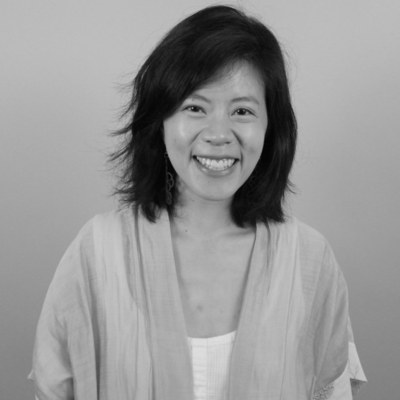
Rebecca Hui
Founder, Roots Studio
2020 Design for Social Impact Jury Captain
Rebecca is a designer and social entrepreneur who has spent nearly a decade elevating the brilliance of overlooked artists to the global limelight. She started Roots Studio, which digitizes indigenous art into an online library for licensing into fashion and home, with returns of 5 - 20x the status quo price. Her work has ranged from turning heritage tattoos into animations, to producing thousands of notebooks from a scroll painting tradition with fewer than 7 artists left. She has been recognized as a Forbes 30 Under 30 Social Entrepreneur, Echoing Green Fellow, a US Department of State Innovation Delegate, and an Unreasonable Group Fellow. Her work has been written in PBS, TechCrunch, WGSN, MIT Technology Review, and Stanford Social Innovation Review. Rebecca also advises on cultural restoration for post disaster regions and mapping technology with the World Bank and the United Nations. She started her journey as a Fulbright Scholar and National Geographic Explorer on the project, "The Secret Life of Urban Animals".

Victor Ermoli
Dean of the School of Design, Savannah College of Art and Design
2020 Built Environment Jury Captain
Victor Ermoli is currently the Executive Director of eLearning and Dean for the School of Design at the Savannah College of Art and Design, a member of the Industrial Design Society of America and the Design Futures Council. He is currently responsible for the Industrial Design, Design Management, Service Design, Design for Sustainability, Interaction Design, Marine Design, User Experience (UX) Design, and Creative Business Leadership programs at SCAD. He has created with his team more than ten academic programs, including Service Design (Only one in the United States), Industrial Design, Design Management, Design for Sustainability, User Experience (UX) Design, Accessory Design, and Luxury Fashion Management; just to mention few. In addition, he is responsible for the management and direction of the eLearning Department for the whole University. This department develops and administers all the online courses and degrees offered by SCAD
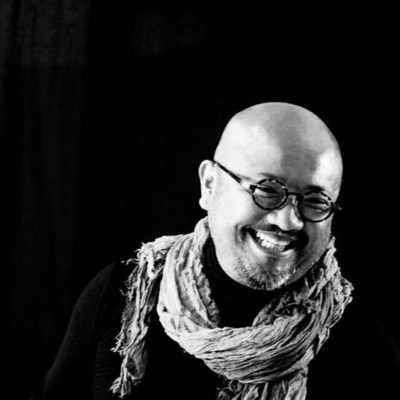
Hsu-Jen Huang
Professor of Architecture, Savannah College of Art and Design
2020 Built Environment Jury Member
Professor of Architecture Hsu-Jen Huang, originally from Taipei, Taiwan, received his Doctor of Philosophy (PhD) in Architecture from the Mackintosh School of Architecture, Glasgow School of Art, Glasgow University, Scotland. He has been teaching at the Savannah College of Art and Design (SCAD) Savannah since 1998. Huang’s experience includes urban design, architecture design, and electronic design and simulation. His academic expertise includes architecture design and presentation, urban design and planning, digital representation, traditional rendering methods, and hybrid media presentation.
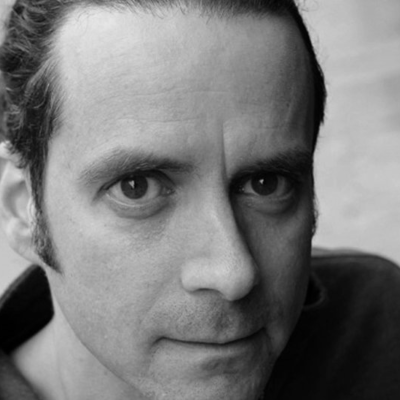
Allan Chochinov
Partner, Core77 | Chair, MFA Products of Design, School of Visual Arts
2020 Design Education Initiative Jury Captain
Allan Chochinov is a partner of Core77, a New York-based design network serving a global community of designers and design enthusiasts, and Chair of the new MFA in Products of Design graduate program at the School of Visual Arts in New York City. Allan lectures around the world and at professional conferences including IDSA, AIGA and IxDA, has been a guest critic at various design schools in including Yale University, IIT, Carnegie Mellon, Ravensbourne, RMIT, University of Minnesota, Emily Carr, and RISD. He has moderated and led workshops and symposia at the Aspen Design Conference, the Rockefeller Center at Bellagio, Compost Modern, and Winterhouse, and is a frequent design competition juror. Prior to Core77, his work in product design focused on the medical, surgical, and diagnostic fields, as well as on consumer products and workplace systems. He has been named on numerous design and utility patents and has received awards from The Art Directors Club, I.D. Magazine, Communication Arts, and The One Club.
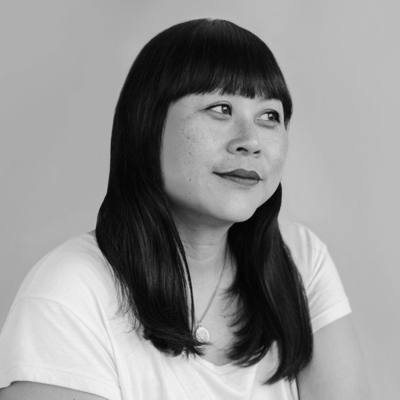
Stephanie Yung
Design Director, Smart Design
2020 Health & Wellness Jury Captain
As Design Director at Smart Design’s New York studio, Stephanie has led projects across the continuum of wellness products and services including: public health, pharmaceuticals, devices, personal care, fitness, and reproductive health. Her personal journey of redesigning the fertility treatment experience as a single woman to be more accessible to all—which she called Project Junior—garnered national attention and was featured in Fast Company and 99u.
In her spare time, Stephanie has shared her expertise in strategic design innovation with audiences ranging from venture capitalists to government agencies; across topics including—designing for social impact, saving women from bad design, and inclusive design. Stephanie also serves on the Board of Advisors as the user-centered design expert for Simprints, a non-for-profit tech company hoping to close the identification gap of over 1 billion people in emerging countries.
Liz Ogbu
Founder and Principal, Studio O
2020 Design Education Initiative Jury Member
Liz Ogbu is an American architect, designer and urbanist whose work focuses on issues related to community building and spatial justice. She is the founder and principal of the design consulting firm Studio O.

Michael Place
Founder, Studio.Build
2020 Packaging Jury Member
A professional designer for almost 30 years, Michael co-founded Studio.Build in 2001. Beginning his career in 1990, he gained experience at various influential design studios in London, before joining the maverick graphics studio The Designers Republic in Sheffield, producing many works that have since earned a place in cultural history. Michael founded Studio.Build on one simple idea to do great work with great people- and that is at the core of the studios philosophy today. With a lifelong interest in typographic design, Michael is fascinated by the powerful part it can play at the heart of graphic communication, which is evident in the work of the studio. Michael has been on the judging panel of design awards worldwide, and has given talks and offered opinion on design at conferences across the globe. The studio has won several awards including from the prestigious D&AD global design awards.
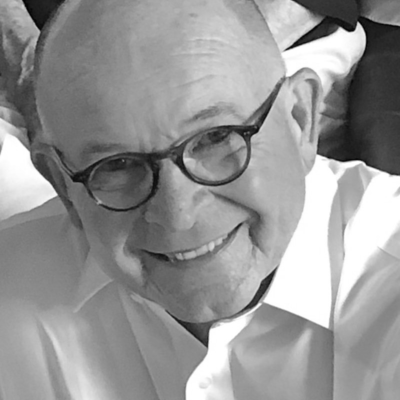
Jim Cramer
Founder, The Design Futures Council
2020 Built Environment Jury Member
Jim Cramer is the founder of The Design Futures Council. He also founded the journal Design Intelligence. He is the author of six books on design management including Small Firm Success and Lessons From The Future both released earlier this year, 2020. His best seller book, How Firms Succeed is now in its 6th Edition. Cramer is the past CEO of The American Institute of Architects and recipient of over 80 design awards and honors.
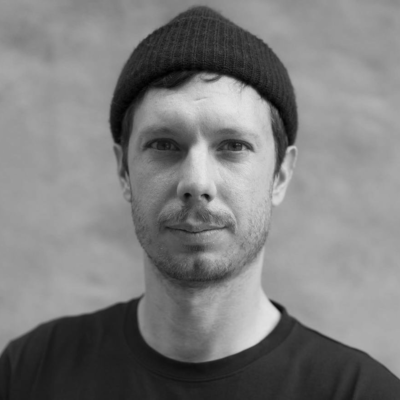
Max Steffen
Global Design Director, Equipment and Accessories, The North Face
2020 Sports & Recreation Jury Captain
Max is the Global Design Director for Equipment and Accessories at The North Face with whom he recently transitioned from the San Francisco Bay Area to Denver, Colorado. Prior to his move to the United States, Max led his industrial design consultancy in Brussels, Belgium. When he’s not exploring the outdoors, he is seeking strategic design solutions that combine the functional world of industrial design with the emotional world of contemporary aesthetics.